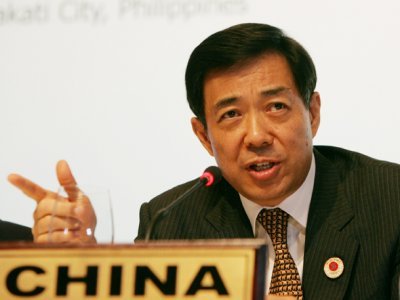
The New York Times has recently reported that Bo Xilai ran a wire-tapping system that extended as far as China’s president Hu Jintao.
Citing “nearly a dozen people with party ties”, the New York Times said the disgraced Bo Xilai ran a wire-tapping network across Chongqing, where he was party chief.
His officials even listened to a phone call involving Hu Jintao, the paper said.
Chinese authorities have not mentioned wire-tapping in reports about Bo Xilai, whose wife, Gu kailai, is being investigated over the death of British businessman, Neil Heywood.
They are investigating Bo Xilai over “serious discipline violations”, while Gu Kailai has been detained as a suspect in the death of Neil Heywood, found dead in Chongqing in November 2011.
Chinese authorities say they believe Neil Heywood was murdered.

Bo Xilai – a high flier once expected to reach the top echelons of office – has not been seen in public since he was removed from his political posts, in the biggest political shake-up in China in years.
Bo Xilai’s wire-tapping operation began several years ago as part of an anti-crime campaign in Chongqing, the New York Times said.
It was handled by Wang Lijun, the police chief whose flight to the US consulate in February signaled the start of Bo Xilai’s downfall, and expanded into targeting political figures.
Last year, the paper reported, operatives were caught intercepting a conversation between the office of President Hu Jintao and Liu Guanglei, a top party law-and-order official whom Wang Lijun had replaced as police chief.
A conversation between Minister of Supervision Ma Wen, who was visiting Chongqing, and President Hu Jintao himself was also monitored, the paper said.
Authorities in Beijing found out and began investigating, straining the relationship between Wang Lijun and Bo Xilai.
The wire-tapping “was seen as a direct challenge to central authorities”, the newspaper reported, citing party insiders.
These new claims will add to the sense that this scandal has exposed deep rifts and mistrust at the very highest level of China’s Communist Party.
Also important were fears that Bo Xilai, seen as a divisive populist, could not be trusted if elevated to the highest levels in the party.
Bo Xilai’s fall from grace comes with China due to begin its once-in-a-decade leadership change in October.
Since the scandal erupted, the lifestyle and political and business dealings of he and his family have come under intense media scrutiny.
Bo Xilai’s brother has resigned as director of a Hong Kong-based company, a day after his son issued a statement defending his lifestyle.